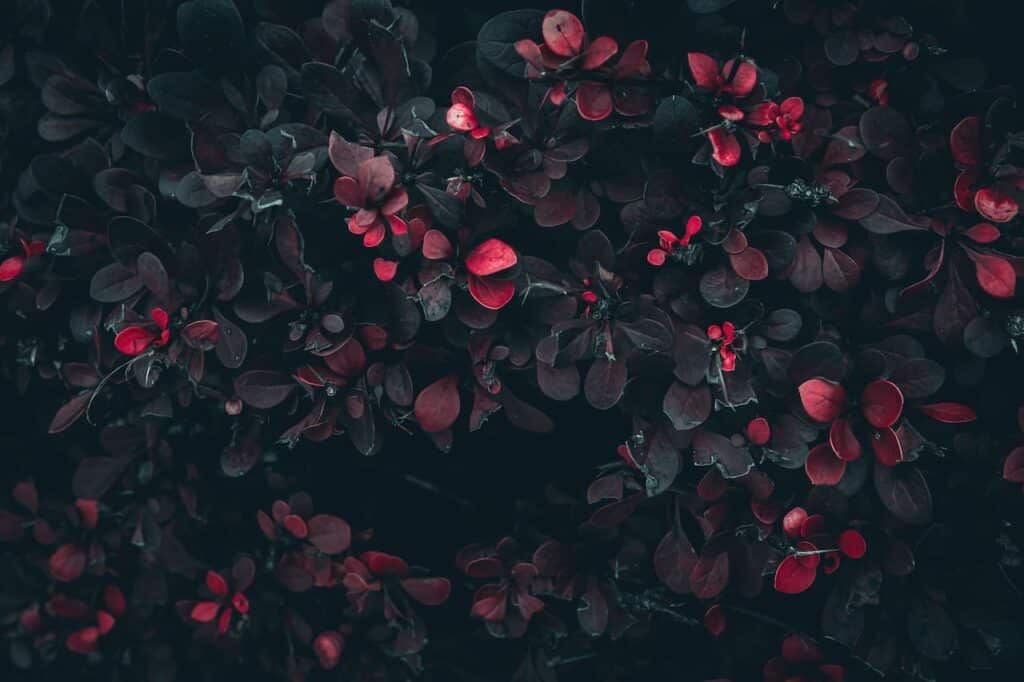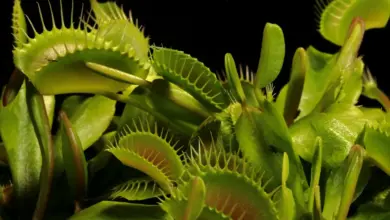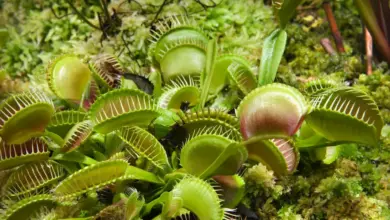When You Need FIERCE Foliage
I’m working on re-designing a client’s suburban front garden with a primary heartfelt plea to “please stop the neighbor’s dogs using this as a bathroom”.
I totally understand their frustration. They love dogs although they don’t currently have any pups of their own. However, you wouldn’t know that from the amount of time they spend cleaning up after everybody else’s dogs! I remember watching one lady casually standing by, her little dog on its leash, watching and waiting as the dog did its business in my own front garden many years ago. I rushed out to confront her, incensed that she thought this was perfectly acceptable behavior! (She never did that again).
While I can’t train the dog owners, one thing I can do for these homeowners is making the garden less desirable and harder to access for canines while still maintaining an aesthetically pleasing outlook that works with the neighborhood. Local regulations prevent me from adding a fence so I will mound up the soil create a berm and add a number of chunky boulders. Between these, I will plant some thorny, low-growing barberries. This is where dogs have better judgment than some owners as they will quickly recognize this as a ‘no go’ zone. It’s just no fun to sniff around in between prickly bushes!
Concorde barberry retains its luscious deep grape color all season
Barberries are not invasive in our area so I am using the burgundy Concorde (Berberis thunbergii ‘Concorde’) that will grow into tidy 3′ mounds as well as the low-growing dwarf coral hedge barberry (Berberis x stenophylla ‘Corallina Compacta’) which has evergreen dark green leaves and vivid orange flowers.
Aloe are interspersed with less prickly companions on this rocky hillside at the UC Berkeley Botanical Gardens
In warmer climates, you may consider agave, aloe, and other super-spiny succulents and cacti. Remember to deter dogs, something low-growing and/or wide spreading is the most effective.
Now, THIS could work – but sadly not where I live. Huntingdon Botanical Garden, CA
Other options might include groundcover-type roses e.g. the Flower Carpet series.
Deterring Larger Intruders
Whether two-footed or four, there are times when one might need to deter larger visitors from trampling your garden – or gaining access to a window. This is when we need super-sized, thorny shrubs.
Pretty marbled colors of Rose Glow barberry
My first call is still for barberries which I use to send deer on a detour around the outer perimeter of our large island border. Rose Glow (Berberis thunbergii ‘Rose Glow’) is inexpensive, and easy to find and the burgundy foliage splashed with cream and pink works well as a backdrop for most plants. With each deciduous shrub forming a 4′ x 4′ fountain a hedge of these creates a formidable barrier.
Gorgeous spring flowers on an evergreen barberry; UC Berkeley Botanical Gardens
The larger evergreen barberries typically have orange flowers which look stunning against the glossy dark green leaves. Darwin barberry (Berberis darwinii) and William Penn (Berberis x gladwynensis ‘William Penn’) are two popular varieties but there are many others.
Love the pincushion of extra spines on this hedgehog holly
Hollies are also a great option; specifically, those that are sterile. I have just purchased a nice big hedgehog holly (Ilex aquifolium ‘Ferox Argentea’ ). Love the bright variegation and extra cream-colored spikes on some of those leaves!
Goshiki Japanese holly is a great choice for barrier planting
Japanese holly (Osmanthus h. ‘Goshiki’) has similar spiny leaves to true hollies without the concern for invasive tendencies. For some reason, mine have not done well over the past few winters, even though last year was quite mild. They have lost almost all their leaves so I am slowly replacing them with other shrubs. Still a great choice for many gardeners, however, and they can easily be sheared to keep to a smaller size.
Charity Oregon grape is a favorite of mine – and hummingbirds
There are many varieties of Oregon grape (Mahonia species) that you could turn to. The taller varieties such as Winter Sun, Arthur Menzies and Charity will all work well as deterrents in areas that get afternoon shade and the yellow flowers attract hummingbirds and bees.
Those stiff spines on the stems and leaves are SHARP!
Gunnera might not be the first thing that comes to mind when you think of thorny plants but the stems on these giants are definitely wicked. If you have moist soil and lots of space this could be an option, making a great visual statement from spring-fall. Sadly it won’t help much in winter as this is a perennial and will be dormant during that time.





